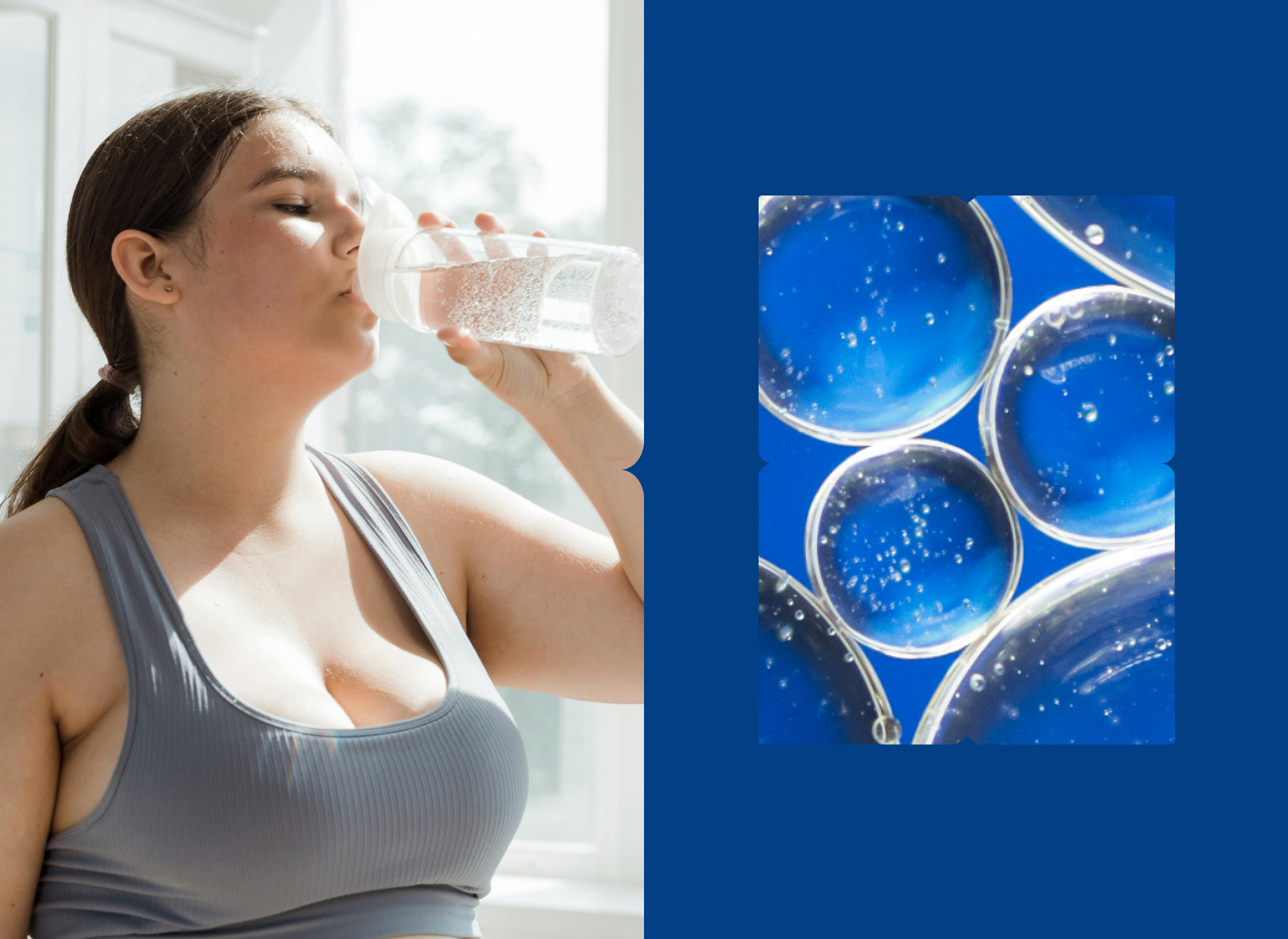How Much Water Is Enough?
Figuring out how much water you need to support optimal brain function isn't an exact science. Most adults need approximately 2 to 3 liters of water each day. You may need more if you exercise strenuously, have health conditions, or take medication that requires more fluids. However, even a little bit of water may help restore mental focus. One study showed that 25ml of water improved attention, even if that amount of water didn't completely satisfy feelings of thirst [8].
Drinking enough water is helpful, but too much water can be a problem, particularly for people with heart, kidney, or liver disease. Overhydration, while rare among healthy adults, can have negative effects on brain function, causing symptoms such as distractibility and lethargy. [9].
You can talk to your doctor about how much water you should be drinking each day.

Home Testing for Hydration
You can maintain proper hydration levels by drinking water or other non-alcoholic drinks, and only consume caffeinated beverages during the day. Fruits and vegetables are also a healthy option for adding fluids to your daily routine.
You can also use home hydration test strips like the hydration urine test strip to check hydration levels. The hydration test strip measures ten different parameters in urine, including specific gravity of urine, which can tell you if you are adequately hydrated.







.jpg)





